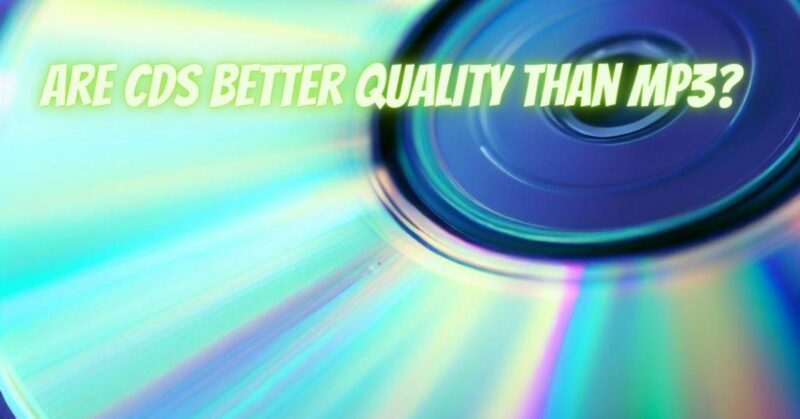In the ever-evolving landscape of music consumption, two formats have captured the spotlight: the venerable Compact Disc (CD) and the ubiquitous MP3. These formats represent distinct approaches to delivering audio content, each with its own set of advantages and compromises. The debate over whether CDs are better quality than MP3s revolves around the balance between audio fidelity and convenience. In this article, we delve into the intricacies of both formats, exploring their differences in audio quality and the factors that influence the listener’s experience.
Understanding CD Audio Quality:
CDs, introduced in the 1980s, set a benchmark for audio quality due to their lossless nature and high-quality audio reproduction.
Pros of CD Audio Quality:
- Lossless Fidelity: CDs offer lossless audio quality, meaning that they capture the complete audio signal without compression. This results in a faithful representation of the original recording.
- Dynamic Range: CDs retain the full dynamic range of the music, from the softest whispers to the loudest crescendos, creating an immersive listening experience.
- Sample Rate and Bitrate: CDs have a standard sample rate of 44.1kHz and a bitrate of 1,411kbps, ensuring high-quality sound reproduction.
- Physical Media: CDs provide a tangible format that can be collected, stored, and enjoyed without the need for an internet connection.
Understanding MP3 Audio Quality:
MP3s, on the other hand, are compressed audio files that prioritize file size and convenience.
Pros of MP3 Audio Quality:
- Space Efficiency: MP3s significantly reduce file sizes through compression, making them convenient for storing and sharing music on digital devices.
- Portability and Accessibility: MP3s can be easily transferred and played on a wide range of devices, including smartphones, laptops, and portable media players.
- Streaming and Downloading: MP3s are well-suited for online streaming and downloading due to their small file sizes.
Audio Quality Comparison:
The debate over whether CDs are better quality than MP3s hinges on the trade-off between sound fidelity and convenience:
- CDs: With lossless audio quality and higher bitrates, CDs offer an audio experience that closely mirrors the original recording. They excel in delivering a nuanced and dynamic sound.
- MP3s: MP3s sacrifice some audio detail in favor of smaller file sizes. While many listeners find MP3 quality satisfactory for everyday listening, audiophiles and those with high-end audio equipment might perceive differences in sound quality.
Factors Influencing Perception:
Several factors contribute to how listeners perceive the differences between CD and MP3 audio quality:
- Playback Equipment: High-quality headphones, speakers, and amplifiers can reveal the nuances in CD audio quality.
- Listening Environment: A controlled and optimized listening environment can enhance the perception of audio quality differences.
- Listener Sensitivity: Some individuals might be more sensitive to audio quality differences than others.
The question of whether CDs are better quality than MP3s is nuanced and subjective. CDs excel in audio fidelity and provide a tangible music experience, while MP3s prioritize convenience and portability. The choice between these formats depends on your listening habits, audio equipment, and the importance you place on sound fidelity. Regardless of the format you choose, the essence of music—its power to evoke emotions and create connections—remains constant, transcending the intricacies of technical specifications.


